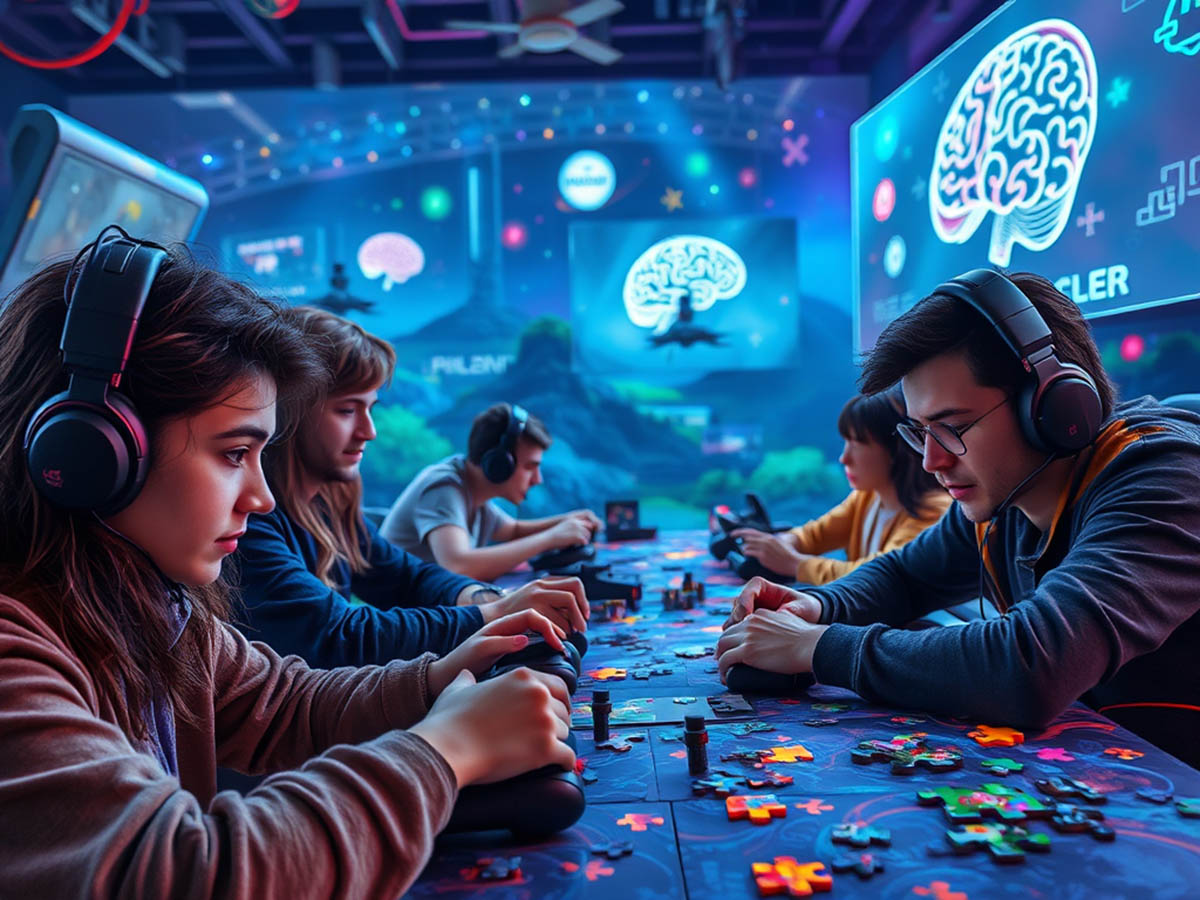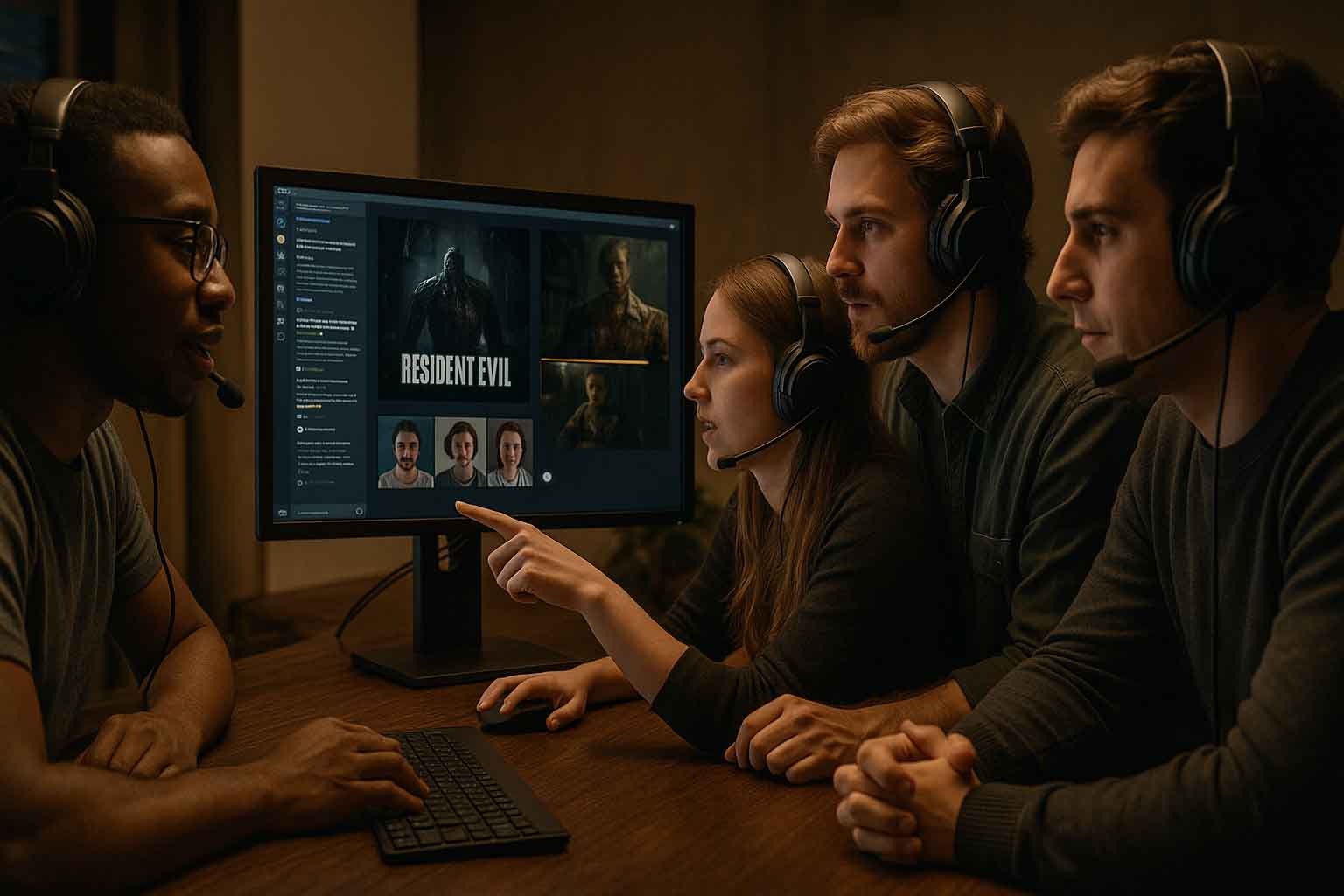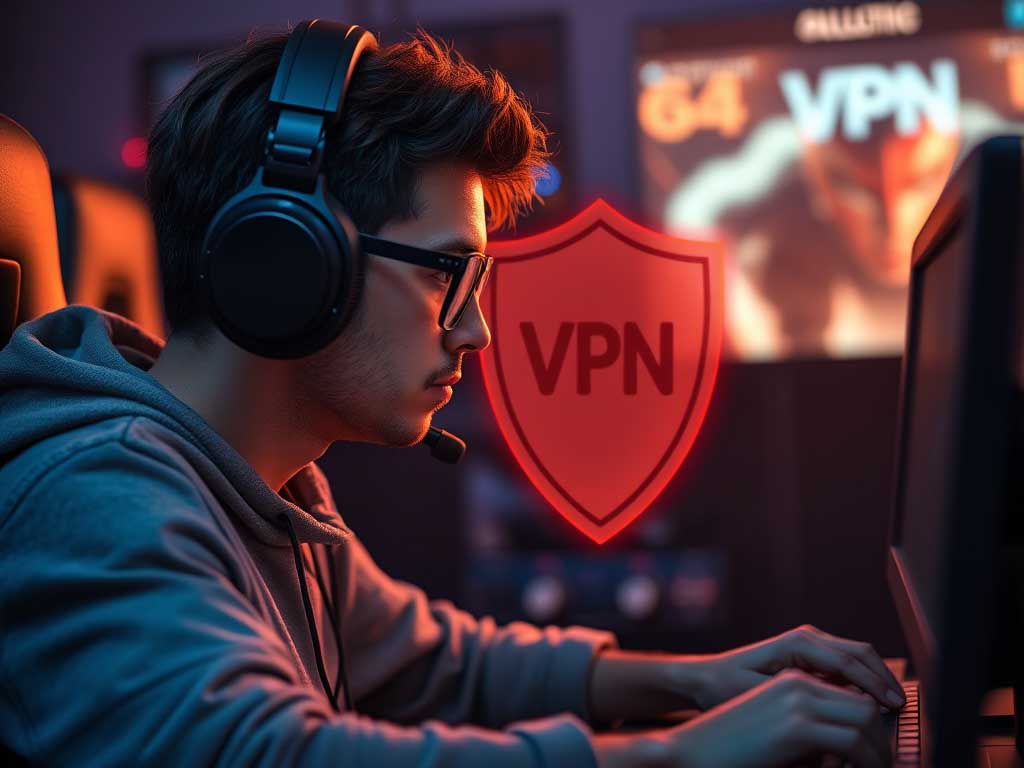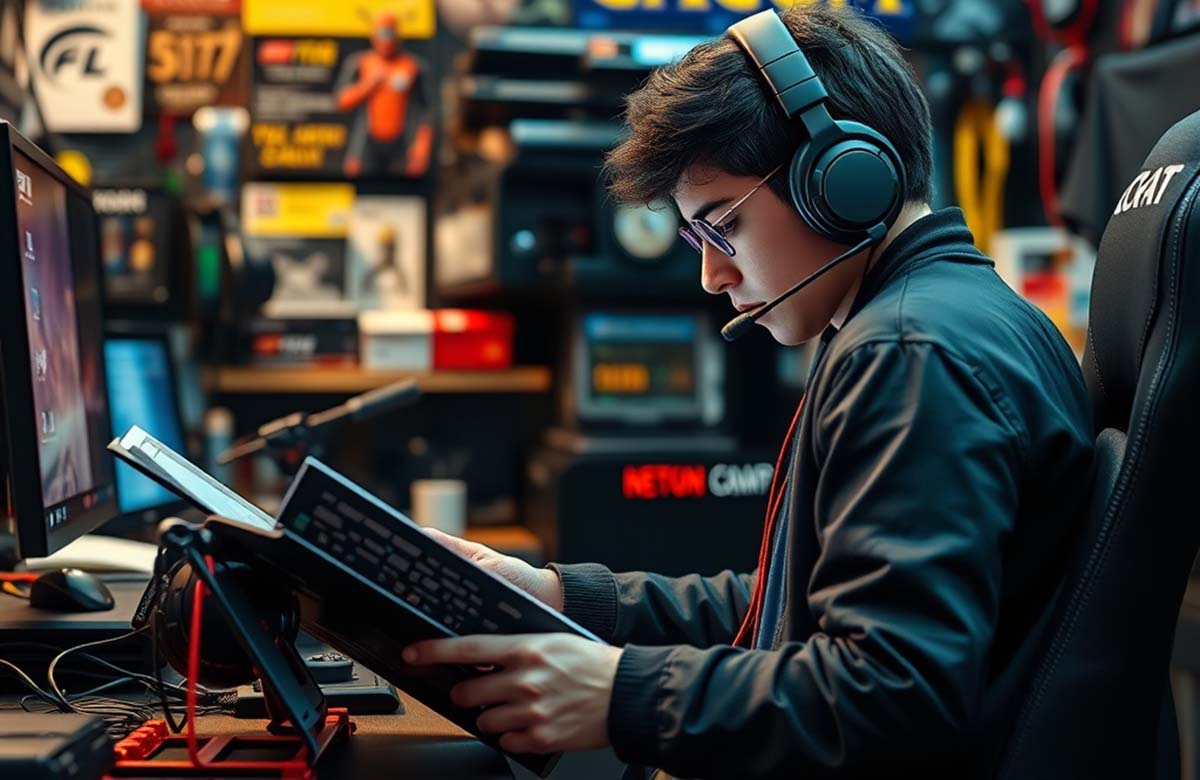Gaming has long been celebrated for its entertainment value, but its potential as a tool for enhancing cognitive abilities is often underappreciated. Puzzle-solving, a fundamental element in many role-playing games (RPGs), introduces players to logic-based challenges that sharpen the mind and improve decision-making skills. Beyond RPGs, standalone puzzle games like Sudoku, Minesweeper, Wordle and 2048 exemplify how puzzles foster mental agility and strategic thinking. When players engage with these games, they are not merely having fun—they’re also training their brains to think critically, analyze patterns, and solve problems. This article explores how gaming and puzzles are interconnected, creating an enjoyable yet intellectually stimulating experience that benefits players in and out of the gaming world.
The Role of Problem-Solving in RPGs
Role-playing games (RPGs) have captivated players for decades with their intricate worlds and compelling stories. However, their allure goes beyond visuals and narrative; these games are deeply rooted in problem-solving. Whether you’re navigating a complex dungeon, deciphering cryptic clues, or figuring out how to defeat a formidable enemy, RPGs challenge players to think critically and creatively at every turn.
Quest-Based Logic Challenges
Quests form the backbone of most RPGs, and they often involve logic-based challenges that require players to think strategically. For instance, in classic RPGs like Final Fantasy or Dragon Age, quests might include solving riddles to unlock secret passages or analyzing character dialogues to determine the correct course of action. These tasks push players to scrutinize their environment and apply logical reasoning. Beyond just entertainment, these quests mimic real-world situations where individuals must evaluate information and make calculated decisions to achieve their goals.
Quests in RPGs also teach players to persevere. Unlike straightforward tasks, puzzles and logic challenges in these games require trial and error, encouraging players to learn from their mistakes and refine their strategies. This resilience can be a valuable skill in real-life problem-solving scenarios, from professional settings to personal challenges.
Combining Strategy with Creativity
RPGs often require players to use both strategy and creativity to overcome obstacles. For example, assembling a balanced team of characters in a game like The Witcher 3 demands a thorough understanding of each character’s abilities while creatively adapting strategies based on the enemies encountered. In puzzles embedded within RPGs, players might be asked to manipulate objects, decipher symbols, or interact with the environment in innovative ways.
The interplay between logic and creativity in RPGs fosters lateral thinking—a skill essential for tackling complex problems. For instance, a quest may require the player to use a seemingly insignificant item in an unconventional manner, encouraging them to think outside the box. This skill isn’t confined to gaming; in everyday life, lateral thinking is crucial for finding innovative solutions to challenges.
Puzzle Games That Enhance Cognitive Skills
While RPGs incorporate puzzles into their design, standalone puzzle games take problem-solving to a new level. These games provide a focused environment where players can hone their cognitive abilities through challenging scenarios.
The Mental Benefits of Sudoku and Minesweeper
Sudoku is a globally recognized puzzle game that tests a player’s ability to analyze, plan, and execute decisions. The game’s grid-based format forces players to work systematically, filling each square with numbers while adhering to specific rules. This process strengthens logical reasoning and boosts concentration. Regular Sudoku players often report improved short-term memory and better focus, both of which are valuable skills for RPG players who need to track multiple objectives.
Similarly, Minesweeper is a game of logic and deduction that teaches players to handle uncertainty. Each click is a calculated risk, and players must interpret numerical clues to deduce the locations of hidden mines. This mental exercise sharpens decision-making under pressure, a skill transferable to games and real-life scenarios. By engaging in these games, players can cultivate a sharper, more analytical mind. If you’re eager to experience these benefits firsthand, solve classic Sudoku puzzles or challenge yourself with Minesweeper.
How Puzzle Mechanics Improve RPG Skills
Many RPGs incorporate puzzle-solving mechanics into their gameplay, seamlessly blending critical thinking into their narratives. For example, environmental puzzles in games like The Legend of Zelda: Breath of the Wild challenge players to use observation, experimentation, and problem-solving to progress through the story. Survival horror games, such as Resident Evil, also introduce puzzle-solving challenges in survival horror games that require players to think quickly under pressure. These puzzles often require an understanding of physics, patterns, and timing, helping players develop a versatile problem-solving skill set. In addition to enhancing cognitive skills, puzzle mechanics in RPGs often encourage teamwork and collaboration, especially in multiplayer settings, where players must work together to overcome intricate challenges.
In addition to enhancing cognitive skills, puzzle mechanics in RPGs often encourage teamwork and collaboration, especially in multiplayer settings. Players must work together to solve intricate challenges, fostering communication and cooperation. These skills are not only vital in gaming but also applicable in team-based work or social environments.
The Overlap Between Puzzle Solving and RPG Gameplay
RPGs and puzzle games share significant similarities, particularly in how they engage players’ cognitive faculties. Both genres challenge players to analyze situations, identify patterns, and make calculated decisions, creating a harmonious overlap that enhances gameplay and intellectual growth.
Analyzing Complex Scenarios in Monster Hunter
In games like Monster Hunter, players are often faced with intricate scenarios that require careful analysis. Each monster has unique attack patterns, weaknesses, and behaviors, and success depends on the player’s ability to identify and exploit these characteristics. This analytical process mirrors the skills developed in puzzle-solving, where observing and interpreting patterns are key to finding solutions.
Moreover, Monster Hunter encourages players to prepare meticulously. Gathering the right resources, crafting effective gear, and studying the terrain all contribute to a successful hunt. These preparatory steps align closely with the problem-solving mindset cultivated by puzzles, emphasizing the importance of foresight and adaptability.
Optimizing Resources in Quest-Based Games
Resource management is a core element in many RPGs, and it closely parallels the strategies required in puzzle games like 2048. In RPGs, players must allocate health potions, weapons, or abilities wisely to ensure success in combat and quests. Similarly, 2048 challenges players to think ahead, merging tiles strategically to achieve the highest score. These games teach players to prioritize and plan, skills that are invaluable in both gaming and daily life. Try the addictive 2048 game to sharpen your resource management skills in a fun and engaging way.
Enhance Your Mind with Puzzle Gaming
The relationship between gaming and puzzles highlights a unique blend of entertainment and mental challenge. Puzzle-solving, whether integrated into RPG quests or experienced through standalone titles like Sudoku, Minesweeper, and 2048, develops critical cognitive skills. These skills include analytical thinking, pattern recognition, and resource management. Improving these skills enhances gaming performance and offers benefits that extend to everyday life. Decision-making, collaboration, and adaptability all improve when you challenge your brain with puzzles.
Every time you engage with puzzles—whether you analyze monster behavior in Monster Hunter or solve logic challenges in Sudoku—you boost your brainpower and enhance your strategic thinking. Gaming becomes more than mere play. It becomes a way to train your mind and develop skills that benefit your work and personal life.
In summary, both puzzle games and RPGs enrich your gaming experience. They provide more than visual thrills and narrative depth. They actively build your cognitive abilities, sharpen your decision-making, and nurture creative thinking. As you game, remember that you are training your mind as much as you are enjoying immersive visuals and epic adventures. This dual benefit of fun and mental exercise makes gaming a uniquely valuable pastime.
So, next time you immerse yourself in a new RPG or challenge yourself with a brain-teasing puzzle, keep in mind the long-term benefits. Enjoy the immersive visuals and let them inspire you to think critically, solve problems, and push the boundaries of your creativity. Gaming truly offers an experience where every challenge and every visual moment can contribute to a sharper, more agile mind.



